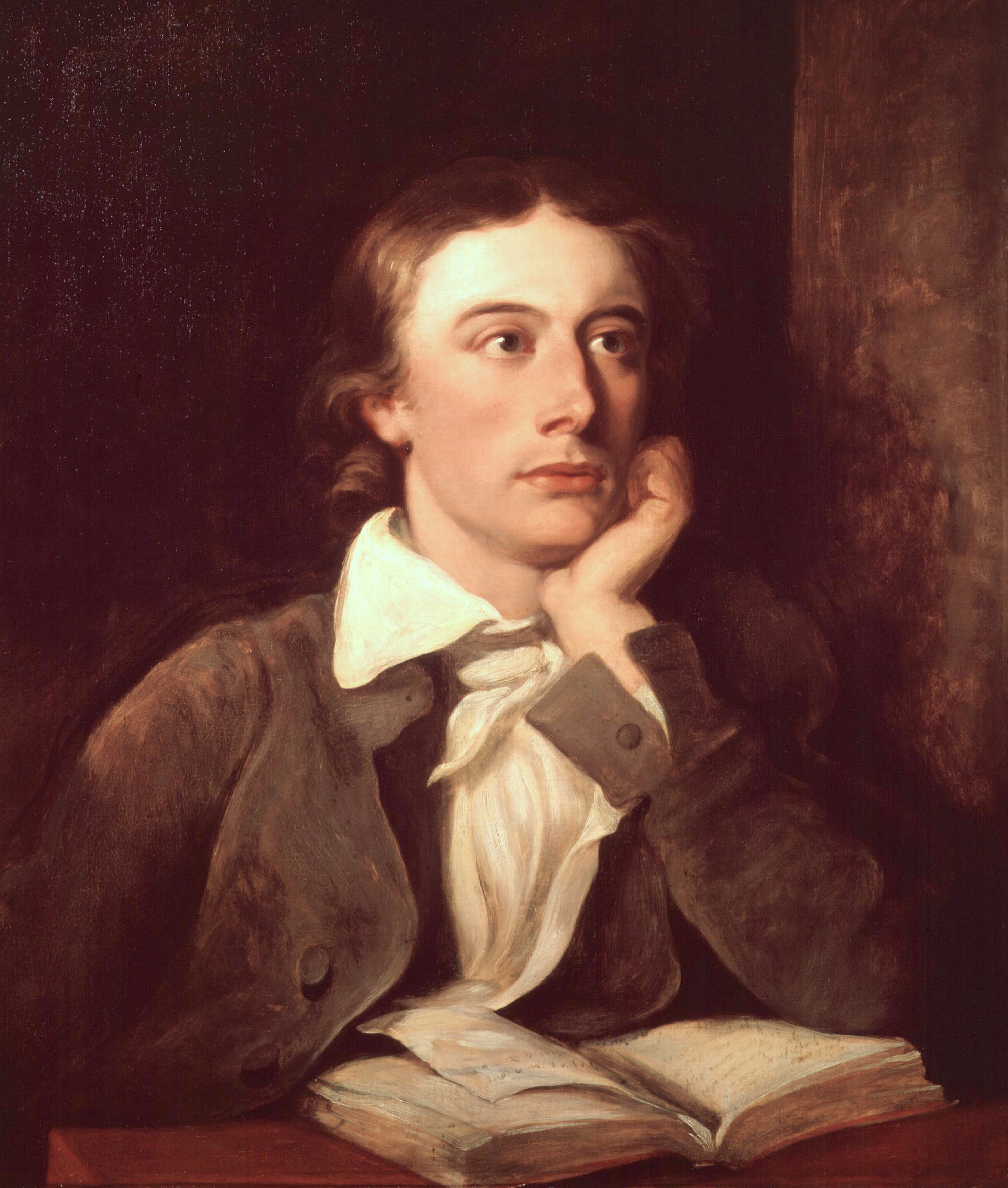da Lettera a Benjamin Bailey, 22 novembre 1817
John Keats frasi celebri
da Lettera a John Taylor, 27 febbraio 1818
da Lettera a George e Georgiana Keats, 18 febbraio 1819
da Lettera a John Hamilton Reynolds, 11 luglio 1819
Frasi sulla bellezza di John Keats
“Una bella cosa è una gioia per sempre: | La sua bellezza aumenta e mai | Sparirà nel nulla.”
cap. I, vv. 906-7
Endymione
da Lettera a James Augustus Hessey, 8 ottobre 1818
da Lettera a John Hamilton Reynolds, 3 febbraio 1818
da Lettera a John Hamilton Reynolds, 9 aprile 1818
Frasi sulla vita di John Keats
da Lettera a Benjamin Robert Haydon, 10-11 maggio 1817
da Lettera a James Rice, 14-16 febbraio 1820
da Lettera a George e Georgiana Keats, 18 febbraio 1819
da Lettera a George e Georgiana Keats, 18 febbraio 1819
da Lettera a Charles Brown, 30 novembre 1820
John Keats Frasi e Citazioni
da Lettera a John Hamilton Reynolds, 25 agosto 1819
da Lettera a Charles Brown, 30 novembre 1820
da Lettera a Benjamin Bailey, 23 gennaio 1818
da Lettera a Benjamin Robert Haydon, 22 dicembre 1818
da Lettera a John Taylor, 23 agosto 1819
da Lettera a Charles Brown, 23 settembre 1819
da Lettera a James Augustus Hessey, 8 ottobre 1818
da Lettera a Richard Woodhouse, 27 ottobre 1818
da Lettera a George e Georgiana Keats, 18 febbraio 1819
da Lettera a Benjamin Bailey, 13 agosto 1819
da Lettera a Fanny Brawne, febbraio 1820
da Lettera a Charles Brown, 28 settembre 1820
da Lettera a Fanny Brawne, 13 ottobre 1819
“La mia immaginazione è un monastero e io sono un monaco.”
da Lettera a Percy Bysshe Shelley, 16 agosto 1820
John Keats: Frasi in inglese
“And how they kist each other's tremulous eyes.”
Origine: Bright Star: Love Letters and Poems of John Keats to Fanny Brawne
“Scenery is fine — but human nature is finer.”
Letter to Benjamin Bailey (March 13, 1818)
Letters (1817–1820)
Letter to John Taylor (February 27, 1818)
Letters (1817–1820)
Contesto: In Poetry I have a few axioms, and you will see how far I am from their centre. I think Poetry should surprise by a fine excess and not by singularity — it should strike the reader as a wording of his own highest thoughts, and appear almost a remembrance — Its touches of Beauty should never be halfway thereby making the reader breathless instead of content: the rise, the progress, the setting of imagery should like the Sun come natural to him — shine over him and set soberly although in magnificence leaving him in the luxury of twilight — but it is easier to think what Poetry should be than to write it — and this leads me on to another axiom. That if Poetry comes not as naturally as the leaves to a tree it had better not come at all.
"Bright Star" (1819)
Contesto: Bright star! would I were stedfast as thou art-
Not in lone splendour hung aloft the night
And watching with eternal lids apart,
Like nature's patient, sleepless Eremite,
The moving waters at their priestlike task
Of pure ablution round earth's human shores.
Letter to G. and F. Keats (December 21, 1817)
Letters (1817–1820)
“Can death be sleep, when life is but a dream,
And scenes of bliss pass as a phantom by?
---"On death”
Origine: Complete Poems and Selected Letters
“I am sailing with thee through the dizzy sky!
How beautiful thou art!”
Origine: Bright Star: Love Letters and Poems of John Keats to Fanny Brawne
“When it is moving on luxurious wings,
The soul is lost in pleasant smotherings.”
Origine: Bright Star: Love Letters and Poems of John Keats to Fanny Brawne
Stanza 6
Poems (1820), Ode to a Nightingale
Origine: Complete Poems and Selected Letters
Origine: Bright Star: Love Letters and Poems of John Keats to Fanny Brawne
“Sweet are the pleasures that to verse belong,
And doubly sweet a brotherhood in song.”
"To George Felton Mathew" http://www.bartleby.com/126/11.html (November 1815)
Letter to Percy Bysshe Shelley (August 1820)
Letters (1817–1820)
“Music's golden tongue
Flatter'd to tears this aged man and poor.”
Stanza 3
Poems (1820), The Eve of St. Agnes
“As though a rose should shut and be a bud again.”
Stanza 27
Poems (1820), The Eve of St. Agnes
Letter to George and Georgiana Keats (March 19, 1819)
Letters (1817–1820)
“There is not a fiercer hell than the failure in a great object.”
Preface
Endymion (1818)
Letter to George Keats (September 21, 1819)
Letters (1817–1820)
Bk. II, l. 203
Hyperion: A Fragment (1819)
“Woman! when I behold thee flippant, vain,
Inconstant, childish, proud, and full of fancies.”
" Woman! When I Behold Thee Flippant, Vain http://www.bartleby.com/126/10.html", st. 1
Poems (1817)
Letter to Benjamin Bailey (November 22, 1817)
Letters (1817–1820)
“E’en like the passage of an angel’s tear
That falls through the clear ether silently.”
"Sonnet. To One Who Has Been Long in City Pent"
Poems (1817)
Sonnet, The Day is gone; reported in Bartlett's Familiar Quotations, 10th ed. (1919)
